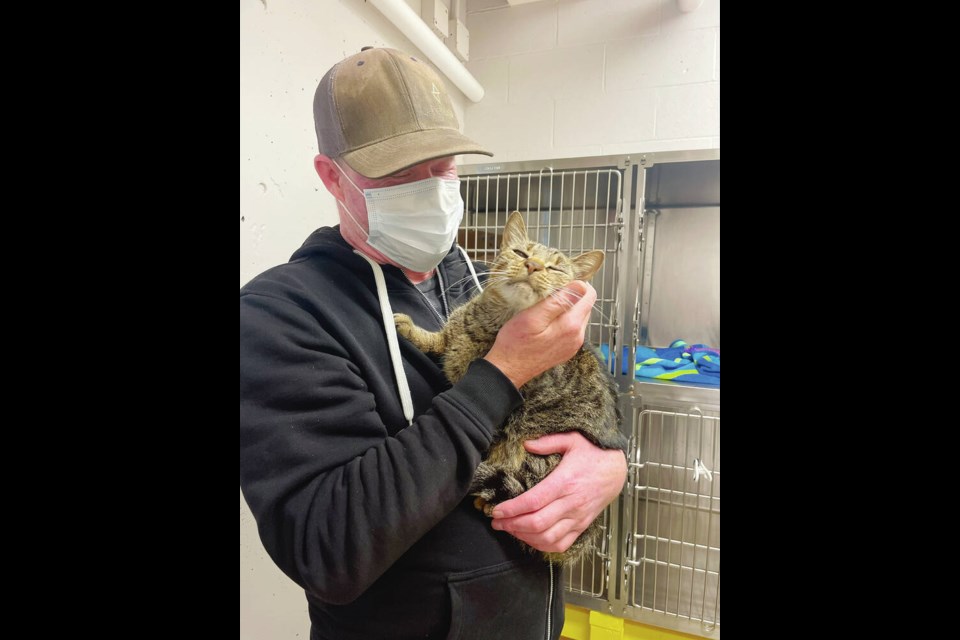A cat that bolted from his Victoria owners during a camping trip up-Island in June has just found his way home, thanks to a microchip the size of a grain of rice and the B.C. SPCA.
Hobbes, a three-year-old tabby, and his family had just arrived at their campsite at Kennedy Lake, north of Ucluelet, when a dog spooked him and he bolted into the bush.
His distraught family spent the next six days searching for him, to no avail.
On Saturday, they got a telephone call from the Nanaimo branch of the B.C. SPCA — a call they thought would never come. Hobbes had been found in that city, more than 150 kilometres from where he went missing.
“They were overjoyed to hear the news,” said Wendy Kotorynski, senior manager of the Nanaimo branch of the B.C. SPCA. “They had all but given up hope and were even preparing to donate their cat items because it had been so long.”
She said that Hobbes was found by a local resident meowing in her driveway last Thursday. Initially, she thought it was one of her cats, but as the cat drew closer, she saw how scraggly he looked. He followed her into the house, gobbled down some food, curled up and went to sleep.
He left the next morning, but returned again that night.
Once the resident determined that her visitor did not belong to one of her neighbours, she brought him to the Nanaimo branch of the B.C. SPCA.
“Her cats were microchipped, so she was hoping that it would be case with the stray,” said Kotorynski. “The staff scanned and we were able to call the owners, who came to pick him up on Sunday.”
In an increasingly popular alternative to an ID number tattooed on a pet’s ear, a microchip with a 9, 10 or 15-digit number is inserted under the skin — usually between the pet’s shoulder blades.
When a stray pet is surrendered to an animal shelter, or brought to a participating veterinarian, staff can scan for the presence of a chip, which usually includes the animal’s identification and its owner’s contact information.
It’s not a tracking device, however, so there is no way to discover how Hobbes made it from Kennedy Lake to Nanaimo or the adventures he had on his way.
He was the second lost cat that found its way to Nanaimo this year, Kotorynski said. In July, a Victoria family was reunited with their cat, Miri, two months after she did not return home one night. In that case, she also had a microchip with her owner’s information.
Kotorynski has no idea why lost cats keep turning up in the mid-island community. “If only pets could talk,” she said.
Registration in the B.C. Pet Registry, Canada’s first centralized pet identification database created by the B.C. SPCA in 2015, costs $12 annually or $45 for a lifetime.
Those who travel out of the province and into the United States are covered as well, since microchips are traceable via the American Animal Hospital Association international microchip lookup service.
For more information, go to bcpetregistry.ca.



